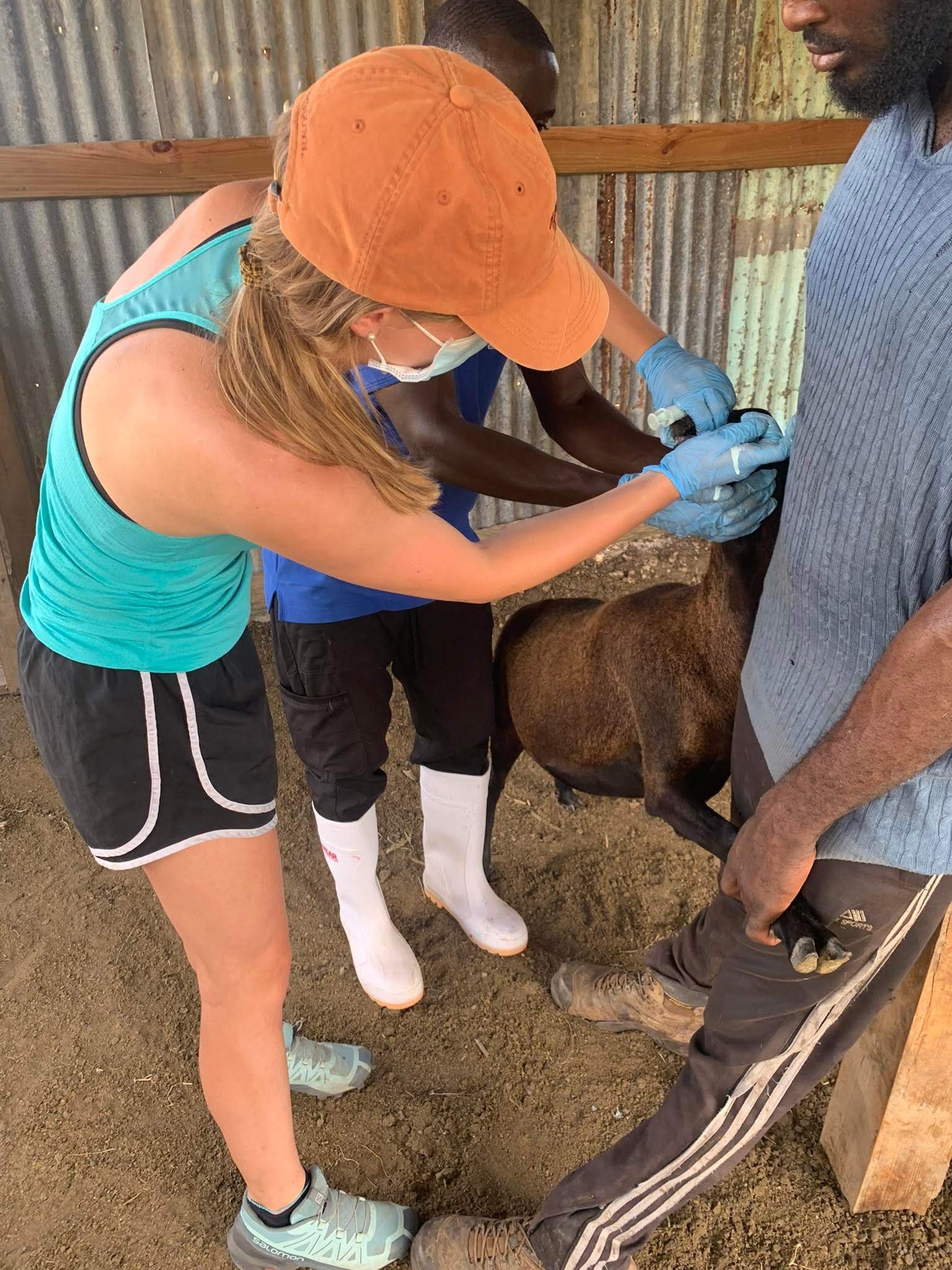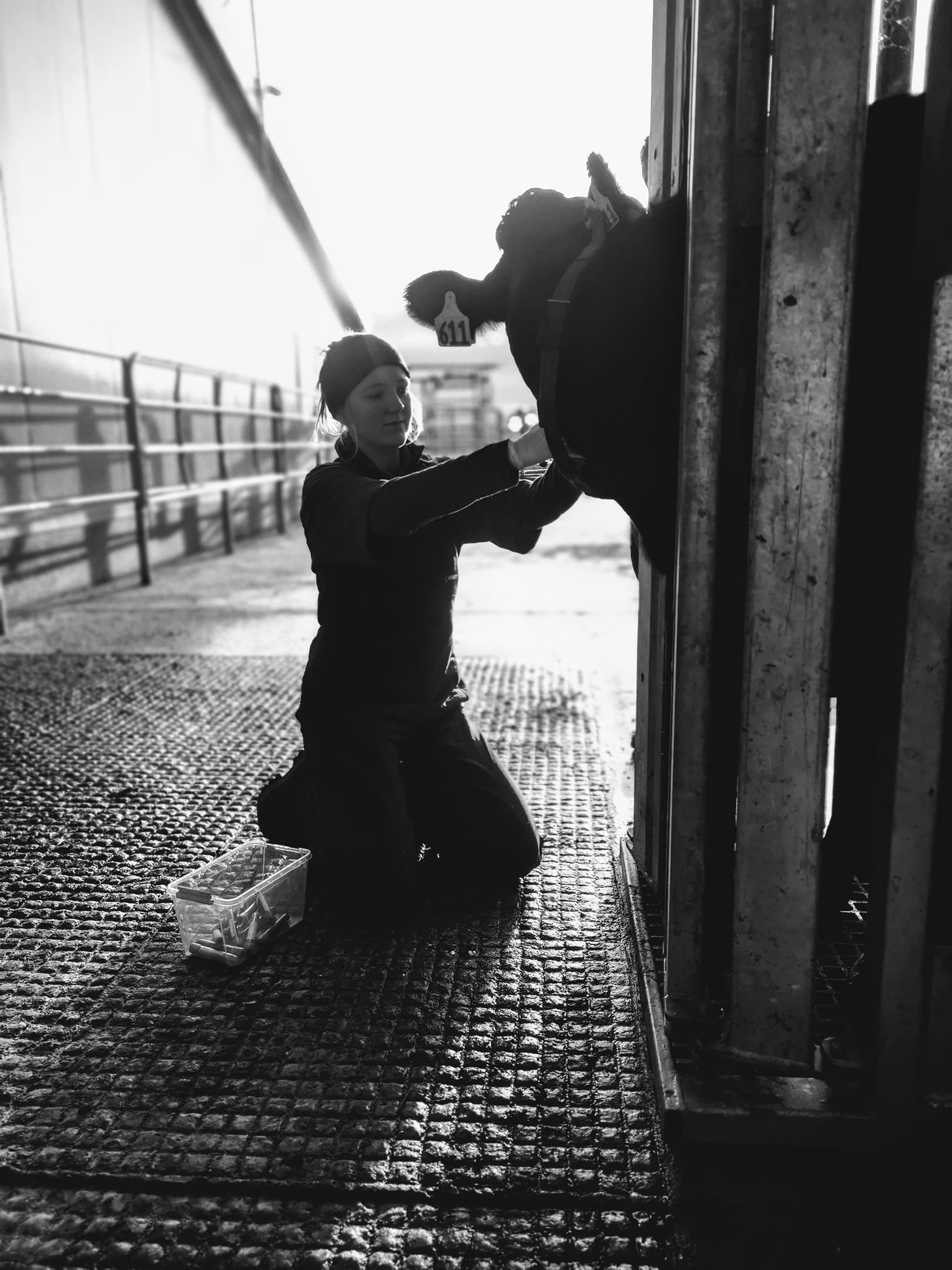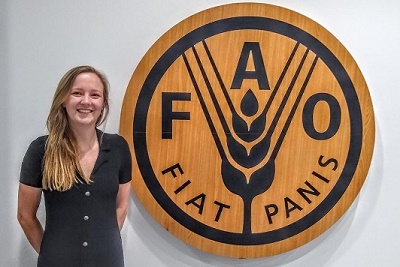A short summary of my project (more research details later)
I'm raising money to help fund my research project which I believe will help guide the humanitarian efforts in the drought in the Horn of Africa.
Between the large-scale, donor-driven projects and the grass-roots local NGO projects there have been countless costly interventions in the current drought, which is the longest the region has seen for 40 years. Yet, it is not in the interest of many organisations to take a step back and reflect on the effectiveness of their efforts in terms of real community impact.
My masters dissertation seeks to gather these reflections from across policy makers, NGOs, the UN and on-the-ground community animal health workers. In order to do this, I will need to undertake some in-depth interviews, focus group discussions and disperse some questionnaires. This way, I can gather useful, exploratory and raw information from the people truly working in the drought. Unfortunately, as I had to take my MSc part-time over two years, this make me ineligible for most of the University of York's traditional funding. I have also contacted approximately 20 organisations but as of yet have had no luck. Believe me, I have searched high and low! Therefore, I look to you to help me gather a relatively small amount of money to cover the costs of the interpreter, publishing and some basic logistical costs.
I will give regular updates on the progress of the project, including at least twice prior to the fieldwork to detail the planning process, at least twice during the fieldwork and at least twice during the write-up stage.
MY STORY
I am a veterinarian who is committed to working towards zero hunger in disaster-affected communities. I have always worked extremely hard to gain as many useful skills as I can towards this goal, the latest of which being undertaking the MSc in International Humanitarian Affairs at the UoY. Outside of this I juggle working as a clinical livestock veterinarian and working as a consultant for the Food and Agriculture Organisation of the United Nations (FAO).
I have a proven record of trying my upmost to contribute to the sector in the little years I have been working in it (below are some photographs from my efforts). I hope to enact change, whether this be through working for an NGO, continuing my work for the UN or going into academia - I'm not too sure yet, I'm still working out where my skills will be most useful!



If I receive your funding funding, this will go straight towards research costs. I will use this to pay for the following in order, starting at the top as the most important:
- Recording/audio equipment: £50
- Printing of surveys etc: £25
- Publication costs: £1500 with frontiers journal (hope to ask for an early career discount)
- Travel within Ethiopia: £370
- Accommodation in Ethiopia (2 weeks): £370
- Return flights: £1000
- I promise to carefully keep track of costs to ensure not a single bit of this funding is wasted.
Rewards
- I hope to publish my research in an open-access journal so anyone who contributes over £100 and would like to be will be included in the acknowledgements of the publication.
- If you donate between £10-100 I will send a postcard from the field with an update.
- If you donate between £100-500 I will send a postcard and some photographs from the field (+/- acknowledgement).
- If you donate more than £500 I will send a postcard, a letter and some photographs from the field as well as send a bound copy of my research project when completed (September) (+/- acknowledgement).
Help Me succeed!
You don't need to give money to help us succeed (although it would help)! Please share this project with anyone you think would support me – on Twitter, Facebook, LinkedIn, by email, telephone, in a chat over the fence.
The research (long version)
Background:
The Horn of Africa is currently in the midst of the longest drought it’s faced in fourty years. This, compounded by conflict, food price increases, on-going desert locust presence, and COVID-19 have resulted in an estimated 36.4 million people suffering from hunger. According to the FAO, agriculture bears 80% of the impact of such droughts. For example, in Ethiopia over 3.5 million livestock have died and another 25 million are at risk of death with little to no production. This represents a huge loss of nutrition and economic potential for the millions who rely on livestock for their livelihoods.
Agriculture, alongside food and nutrition are the UN clusters reaching the largest number of people in the current drought efforts. Various interventions are being used in relation to agriculture/livestock, including:
- In-kind transfers of agriculture items such as seed, tools, fertilizers
- Rehabilitating water infrastructure to improve access to water for livestock
- Provision of emergency livestock assistance such as vaccination, supplementary feed and forage production.
- Rehabilitation of damaged veterinary clinics/animal health centres
As the drought goes on and the cost of interventions go up, who is asking if we as humanitariansare on the right path? Donors and organisations have an incentive to continue with their planned interventions which they have already but millions of dollars into, but there is a lack of in-depth and wide-perspective evaluation. This research hopes to explore this question at multiple levels of the intervention through qualitative, detailed interviews and/or focus group discussions; triangulated with quantitative survey data.
Aims and objectives:
- To gain detailed, real reflections on the livestock-related humanitarian interventions used during the current and on-going drought in the Horn of Africa
- To identify commonalities and differences between the reflections of those involved at various levels of response (from the field, NGO’s, UN, government).
- To explore potential solutions which could improve live-stock related humanitarian interventions in the on-going and future droughts in the Horn of Africa, given the trends of climate change.
Methodology:
This research will be mixed methods, comprising of two parts:
1) Qualitative: Open-ended, semi-structured key informant interviews (or focus-group discussions depending on group). Suggested interviewee’s:
a. Community Animal Health Workers and/or Veterinarians in the field
b. NGO’s: CARE or Veterinarians sans Frontieres
c. Research organisation: Oxford Policy in Borana
d. FAO Ethiopia expert
e. National Government Authority (Kenya suggested)
f. USAID donor contact
Plan to ask an ice-breaker question followed by 4-5 questions and a concluding question such as asking for an answer in more detail. Interviews would be recorded while taking notes of relevant direct quotes then transcribed by myself (unless MIHA has access to transcribing software). Transcriptions will then be processed and coded.
2) Quantitative: Closed-end survey questions, aiming to target larger numbers of people (10 per sector?). Examples of questions to be included:
a. Out of 1-10 how effective would you rate (insert intervention)
b. Do you think (insert intervention) is cost effective.
c. Would you use (insert intervention) in the future.
The results of the two types of method will then be triangulated to reduce potential biases arising from using a single qualitative method. Suggested ways forward will then be discussed for policy makers and field-based organisations.
Questions would be selected based on an initial literature review and discussions with experts. Hopefully, interviews and FGDs will be done in-person and so surveys can be handed out and collected in person also. This would also incorporate a field-visit to the locations where organisations are working to improve understanding of the current situation. In the case this is not possible, telephone interviews can be used instead.
